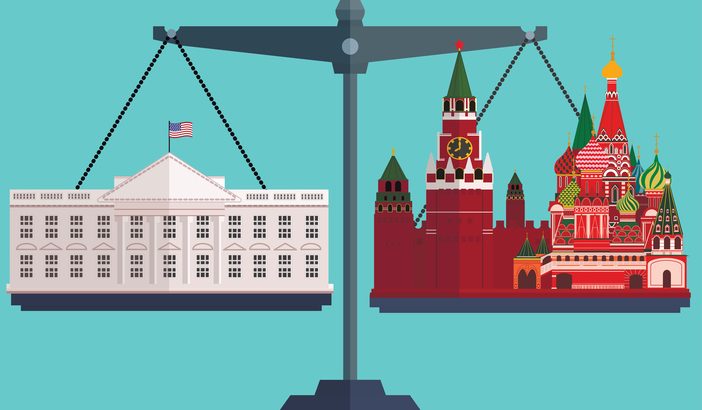“Collusion, of course, is not a legal thing. The question of the underlying crime here might be tricky, and would include possible violation of campaign contribution laws. But if there is an underlying campaign violation in play legally, the email and meeting are very strong evidence of a nascent conspiracy and attempt to commit such an offense,” says law professor Samuel Buell.
Read More in PoliticoCategory: Global

Collusion? Conspiracy? Here’s What the Law Says
“Anytime you are talking about coordinating or collusion, you are talking about the possibility of conspiracy charges,” says law professor Samuel Buell, a former federal prosecutor. “But conspiracy is not a crime that floats by itself in the air. There has to be an underlying federal offense that is being conspired to be committed.”
Read More in The New York Times
The All (Un)Important Vote That Occurred In Puerto Rico
Last month, the Puerto Rican people went to the polls to vote on whether to become the 51st state, become an independent nation, or remain a territory with no voting representation in Congress. They chose statehood. Since only Congress can grant statehood, the conventional wisdom declared that’s not going to happen. “And yet international law, the U.S.’s post-WWII promises of self-governance for Puerto Rico, and perhaps even constitutional law all suggest that Congress might not have the legal authority to deny Puerto Rico’s choices,” write law professors Joseph Blocher and Mitu Gulati.
Read More in The Hill
Al-Qaida in the Age of ISIS: Redouble Our Efforts
“As the fight against ISIS has demonstrated, if al-Qaida is to be defeated, we must redouble our efforts to track down and degrade al-Qaida’s channels of communication, recruitment and finance. It is time to look beyond the threats that ISIS poses and focus once again on al-Qaida before it is too late,” writes Andrew Byers, a visiting assistant professor of history, and a colleague.
Read More in The Hill
An FDA Drug Voucher Program Needs A Reboot
Professors David Ridley (Fuqua School) and Jeffrey Moe (Global Health) write about Congress updating the laws governing prescription drugs this summer, including changes to a program designed to spur drug development for neglected diseases like dengue, Ebola, Zika and river blindness. “Unfortunately,” they write, “the fix as written to the FDA Reauthorization Act does too little to help the millions of people at risk for these diseases.”
Read More in The Hill
American Exceptionalism and The Making of a Non-Patriot
“It’s not as though other countries are better than ours. Every nation bears the healed scars and the still-open wounds of its history,” writes philosophy professor Alex Rosenberg. He adds that “American exceptionalism is at best an innocent mistake that uninformed patriotism makes difficult to surrender. Once the process of disillusionment is completed, so is the making of the non-patriot.”
Read More in The New York Times
Trump’s Faith In Military Does Not a Strategy Make
After five months in office, President Trump has still not articulated a strategy for the conflicts. That’s a greater cause for concern than how he chooses to delegate to a military for which he remains ultimately responsible, says political scientist Peter Feaver. “They haven’t figured out what their strategy is going to be, so there’s a cart-before-the-horse aspect,” says Feaver.
Read More in TIME

U.S. Climate Policy in the Trump Administration
In a newly released policy brief, law professor Jonathan Wiener, Kenan Institute for Ethics’ Rethinking Regulation co-director, provides context on the complex web of climate change policy, written for the Climate Economics Chair in Paris. Wiener’s essay covers a range of topics related to U.S. climate policies in the wake of President Trump’s decision to withdraw the country from the Paris Agreement on climate change.
Read More at Kenan Institute
The Hardest Part of Trump’s National Security Strategy to Write
Sometime this year, the Trump administration intends to release the legislatively mandated National Security Strategy (NSS). “… The very act of drafting the NSS serves as a (modest) disciplining device on an administration, obliging the team to confront hard truths about previous policy statements and efforts,” writes political scientist Peter Feaver. “Which brings me to the question I have been pondering for quite a while: how hard will it be for President Trump’s team to draft such an NSS? The answer I keep coming to is: pretty hard.”
Read More in Foreign Policy

Is Trump ‘Disrupting’ His Own Foreign-Policy Team?
“What’s unusual here is that the Trump team is facing this significant diplomatic challenge before they’ve got their roster on board,” says political scientist Peter Feaver. “It’s like attempting to do a difficult synchronized swimming maneuver, with half the team not yet in their bathing suits and others not even named to the team yet.”
Read More in The Christian Science Monitor
Can Sessions Discuss Conversations With President Trump?
“In terms of the law of executive privilege, it belongs to the president, and he has not asserted it. General Sessions sought to preserve the president’s ability to assert it, but that is not how it works,” says law professor Lisa Kern Griffin. “… The president could have instructed him not to answer any questions about their conversations because of executive privilege. That, apparently, did not happen, and no privilege was asserted.”
Read More in Vox

Russia Probe: Possible Explosive Moments
Investigators looking into whether Trump’s team worked with Russia to win the White House could go down a path defined by other showdowns, where there’s little history beyond Watergate or Monica Lewinsky to guide them. “A set of two precedents is not a big set of precedents,” says law professor Samuel Buell. “You also have to say whatever the Trump story ends up being, it’s probably going to be something else.”
Read More in Politico
